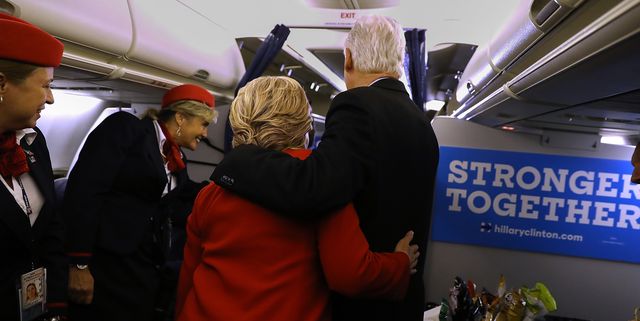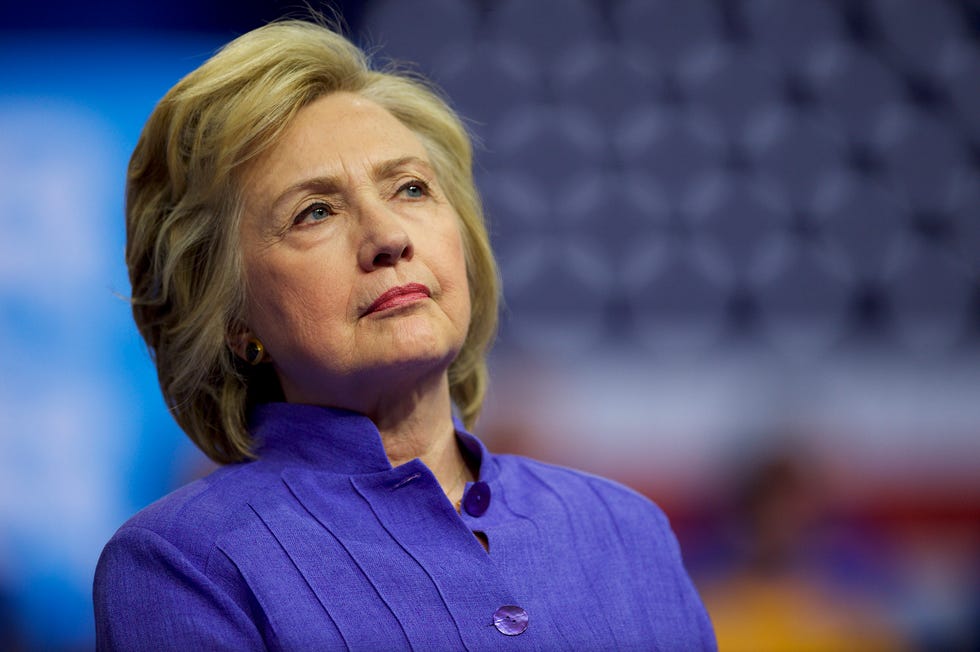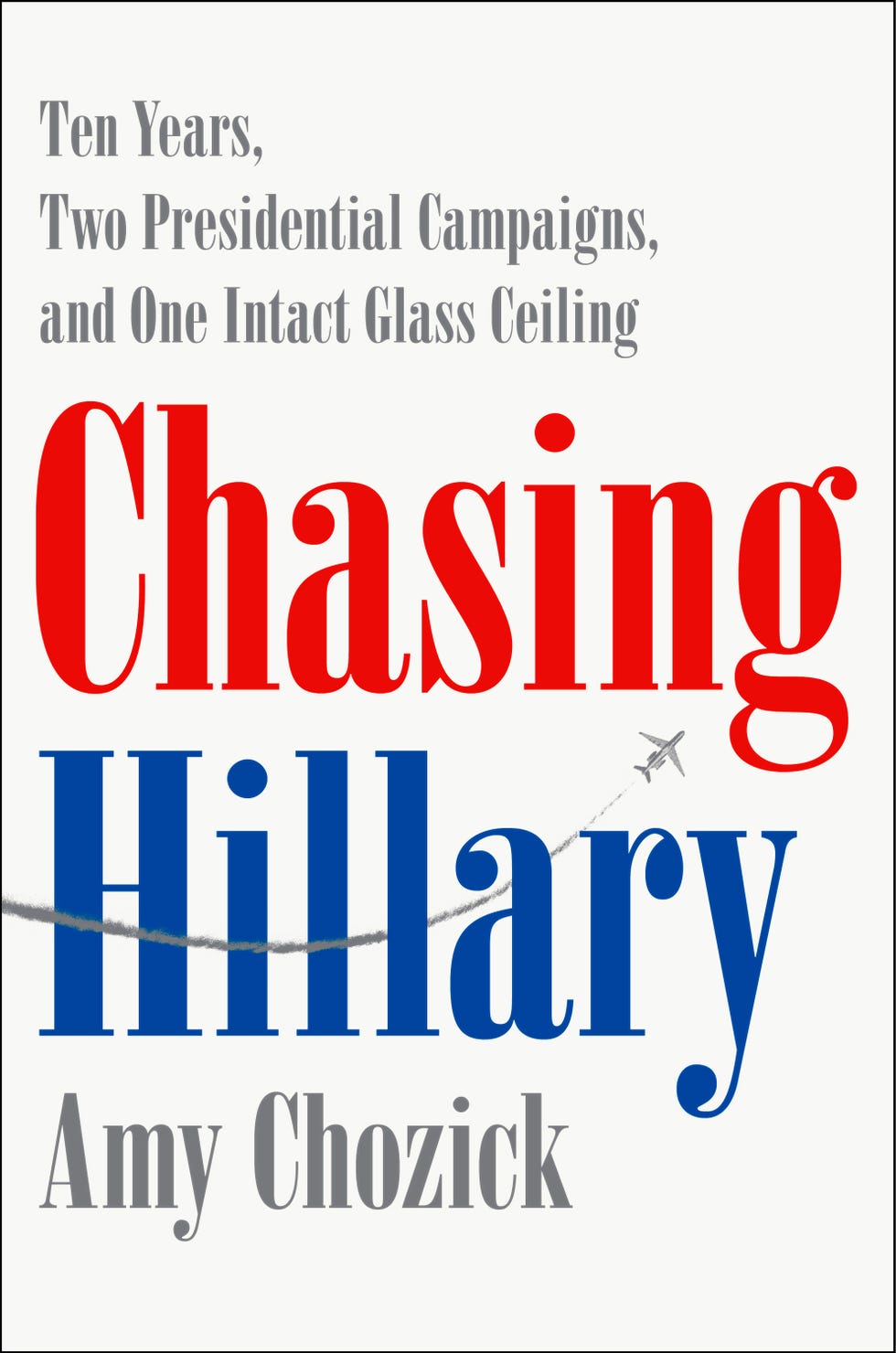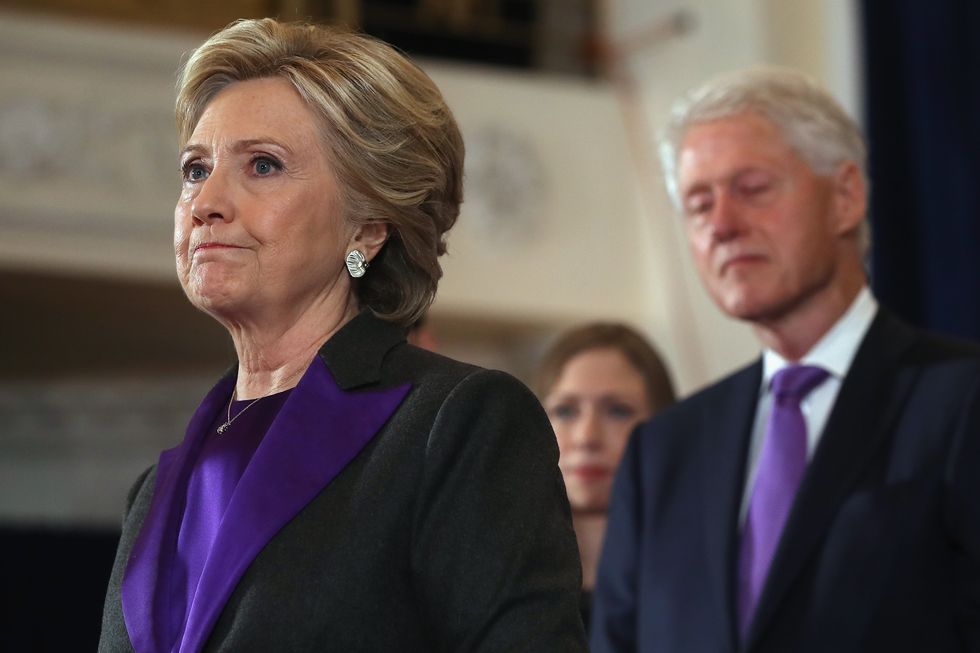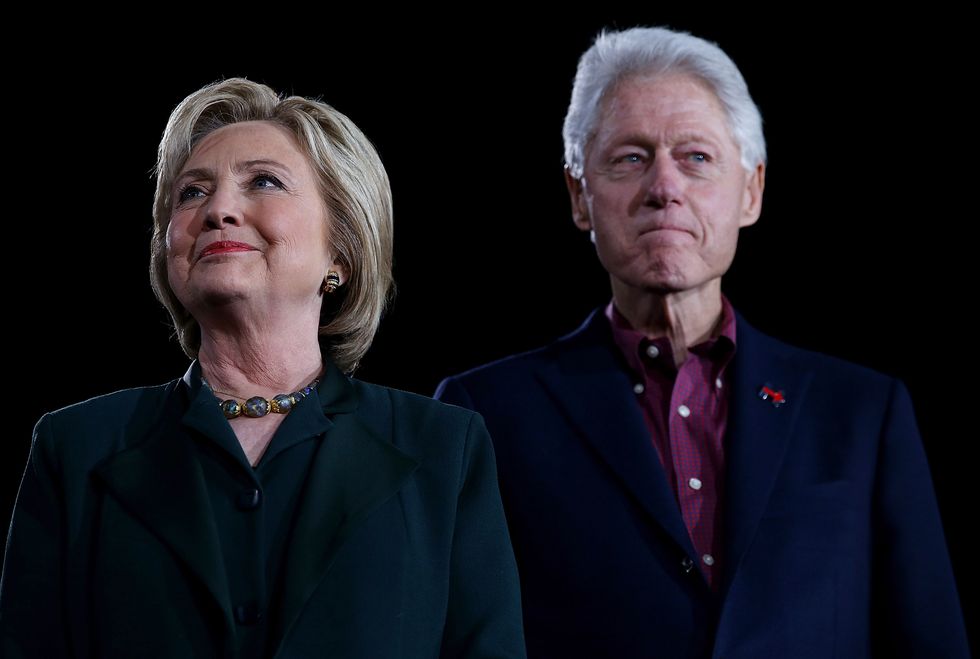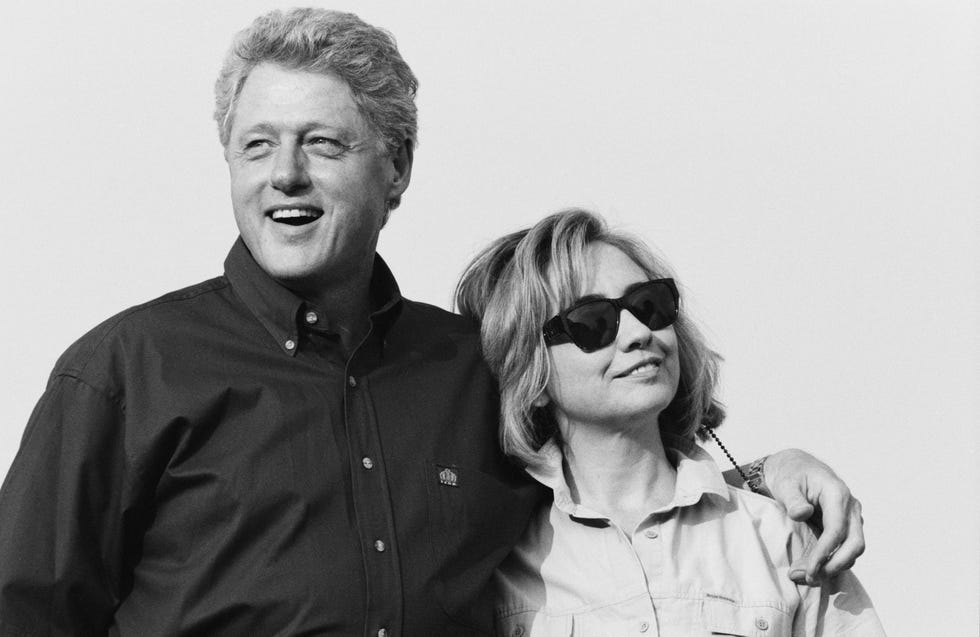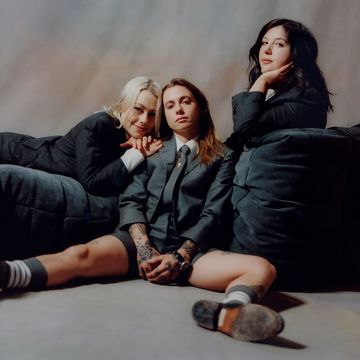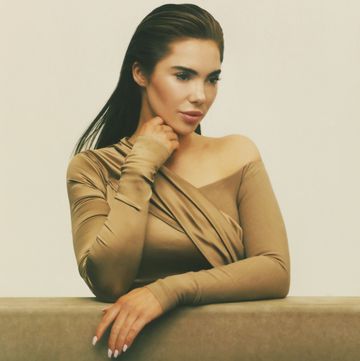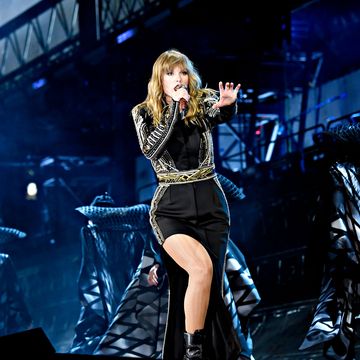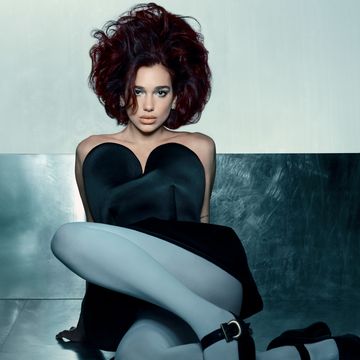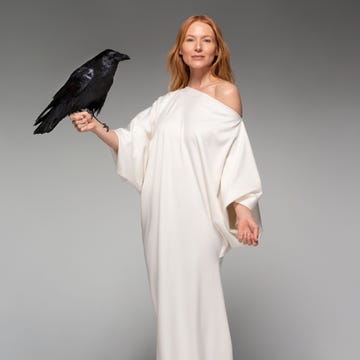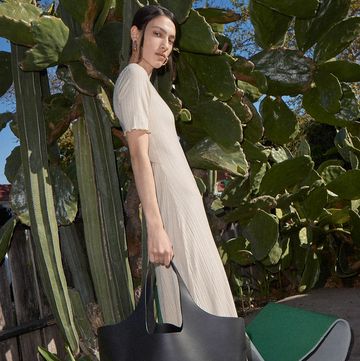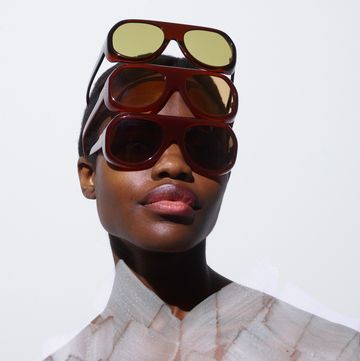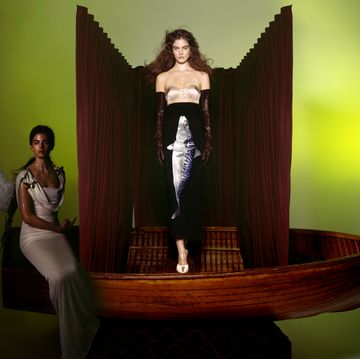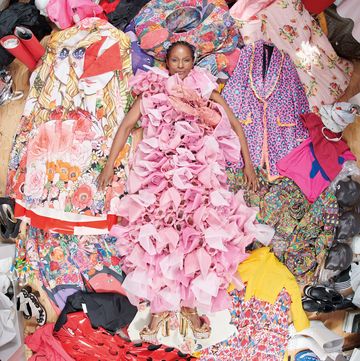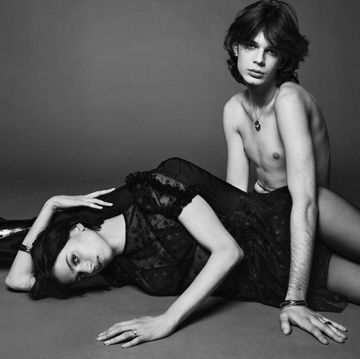Millions of Americans despaired when Hillary Clinton lost the 2016 presidential election. For Amy Chozick, the loss meant reevaluating her life’s work. The now 38-year-old, who hails from San Antonio, first reported on Clinton’s 2008 campaign for the Wall Street Journal before landing her dream job covering the 2016 campaign for the New York Times. There she published 1,285 stories on the Clinton beat, among them the first on-record interview with Chelsea Clinton and the controversial New York Times Magazine “Planet Hillary” cover story.
Throughout her years of reporting—working from cheap motels, on trains, in rental cars, and finally on the presidential candidate’s press plane—Chozick found that her life had become strangely entangled with Clinton’s. Tracking the politician’s every move took priority over her personal life. While her husband was understanding about the demands of her job, the couple put children on hold for fear it would conflict with her rigorous and unpredictable schedule—especially as Clinton inched closer to the White House. “So many women have had to make these sacrifices—putting off having kids, letting their husbands down—for some career opportunity,” Chozick says. “Mine just happened to be covering the woman trying to become the first woman president.” It’s not insignificant that HRC herself has long been seen as the personification of female ambition. “I suppose I could have stayed home and baked cookies and had teas,” Clinton famously said during her husband’s first presidential campaign, “but what I decided to do was to fulfill my profession.”
In 2013, Chozick talked to her doctor about freezing her eggs, a safeguard for a future not dictated by Clinton’s schedule. It was then that she began toying with the idea of writing a memoir. “My vision was always Julie & Julia, but with politics instead of cooking,” Chozick says. “This woman taking over my life: I think about her all the time, and she thinks about me never.” The result—Chasing Hillary: Ten Years, Two Presidential Campaigns, and One Intact Glass Ceiling—is a fascinating, anxiety-inducing, and at times heartbreaking account of what it was like, as a female reporter in an unusually female-dominated press pool, to cover the would-be first female president. “These politics books are always written by great men getting inside the campaigns of other great men,” Chozick says. “There’s a lot of dick swinging.”
Of course, dick swinging, for lack of a better expression, played a major part in the 2016 election as well, from the current president’s fixation with, ahem, hand size to the sexist overtones that plagued Clinton’s campaign. And then, as Chozick says, “It’s amazing how many men accused of sexual harassment or assault were around Hillary prominently.” Her own husband, Bill Clinton, and her top aide Huma Abedin’s husband, Anthony Weiner, most notably. “Looming over all of it is that she was trying to defeat an opponent who bragged about sexually assaulting women. It was this swirl of abuse and assault allegations around her. I certainly don’t fault Hillary for that; I think maybe it’s a question of when a woman reaches that highest echelon of power, does she have to learn how to function around badly behaving men?”
Herewith, a behind-the-scenes look. What both sides of the presidential campaign had in common: men on their most questionable behavior. —Keziah Weir
Bill's Last Stand
Chappaqua, October 2016
Bill Clinton was pissed off at the world. Trump parading out those women [1]. The lawyers insisting he lay off dozens of employees and shutter the Clinton Global Initiative (CGI) [2]. Brooklyn [3] blaming him for that smug James Comey taking over the email investigation.
Clinton turned 70 in August. He’d always thought Hillary would go to the White House and he could mostly stay in Chappaqua and continue to run the foundation. Even though Hillary moved back there after the State Department, Chappy had always been Clinton’s stomping ground. In the paid-speech boondoggle years, Hillary would sometimes spend nights at a suite in the Lowell on the Upper East Side. People said Chelsea needed a $10 million apartment so that her mom could sleep over, but that hardly ever happened.
“I hope I’ll get permission to keep this foundation going,” Clinton told Queen Latifah on her eponymous talk show in 2014. Wishful thinking.
Two years later, it was obvious there would be no way for Clinton to maintain any semblance of his postpresidential life. His ego took a hit. At Hillary’s Roosevelt Island kickoff speech, I overheard a gaggle of young girls point at Bill as he made his way through the crowd and shout, “Look, there’s Hillary’s husband!”
The Clinton Foundation had been so dragged through the dirt that there was no way he could keep it going. I’d seen CGI’s work in Africa—seen deaf Ugandan children given the gift of hearing—and still helped fire the opening shot with the 2013 investigation into mismanagement that I cowrote. Even if Clinton could somehow avoid the White House Easter Egg Roll and continue to run his foundation after the election, his philanthropy wouldn’t have much money coming in. Along with shutting down the Clinton Global Initiative, the foundation said it would stop accepting foreign donations. There would be no more late nights with rich donors hanging on Clinton’s every word.
But it wasn’t just the foundation. The entire election had become a repudiation of the Bill Clinton years—NAFTA, the 1994 crime bill [4], his dismantling of financial regulations, his gutting welfare by $55 billion. People—Democrats, even—linked the rise of Trump, the general degradation of the office of the presidency, to Clinton. He lied about getting a blow job in the Oval Office, so why not turn to a reality TV star who brags about sexual assault and seems proud to be propped up by the Russians?
It seemed the whole country was in open, angry revolt against a presidency that until recently most people would’ve said was pretty good. As Hillary used to say during the 2008 primary, whenever she was accused of living in the past, “What part of the 1990s didn’t you like—the peace or the prosperity?” Incomes rose for everyone, not just the rich. No major wars, unless you count the Balkans and Somalia.
In the spring, Clinton had this embarrassing showdown with Black Lives Matter protesters. They waved signs like "Clinton Crime Bill Destroyed Our Communities" and "Black Youth Are Not Super Predators," a term Hillary had used in 1996 to describe gang violence. Instead of ignoring them, Clinton extended a long finger and entered, as Jezebel called it, “Peak White Mansplain” mode.
“I don’t know how you would characterize the gang leaders who got 13-year-old kids hopped up on crack and sent them out onto the street to murder other African American children,” Clinton said, his bloodshot eyes bulging. “Maybe you thought they were good citizens. She didn’t. She didn’t.” He would’ve been at a yell if his voice had been stronger. “You are defending the people who killed the lives you say matter. Tell the truth.”
As a proxy for his wife’s primary campaign, which at that point was kept afloat almost entirely by black voters, the confrontation was a disaster. But the people who knew Clinton best said he was looking ahead to the fall, and especially the white working-class voters who put him in office in the first place. He figured that, for the most part, those voters would’ve agreed with him.
Like most reporters, I loved covering Clinton, being around him, watching him work a room, even (or especially) at his most self-indulgent. He constantly disobeyed his staff and security detail. In White Plains, before the New York primary, he shook hands at a Hillary field office and then walked across a busy two-lane street. He blocked traffic and almost caused a multicar pileup with a single outstretched palm so he could drop in on the Dominican bodega across the street.
“Amy, Amy, take a look at this. This woman is Peruvian, but she has a Hindi tattoo on her hands,” he said. “Trump’s America,” I said.
By the fall, Clinton was tired of reaming campaign strategist Robby Mook out on conference calls, screaming that the campaign shouldn’t ignore the white voters he’d won in ’92 and ’96 and whom Hillary won over in upstate New York in the Senate years and in her 2008 campaign.
Clinton tried to tell them that he knew Trump better than any of the other candidates did. Hillary, thinking Trump was a bigger donor than he actually was, had insisted they attend his 2005 wedding to Melania, despite a couple of aides warning her not to go. Nobody reminded Clinton that his sexual past left the campaign paralyzed in hitting Trump’s treatment of women. Or that shouts of “Bill Clinton’s a RAPIST!” now interrupted almost all of Hillary’s rallies.
The campaign treated Clinton like a distraction, a gifted but problematic child who needed to be kept busy. Regular updates to Brooklyn from Clinton’s team included, “Fair to say we didn’t break anything.” By October, Clinton had splintered off from the campaign, venturing on a series of “Stronger Together” bus tours. He went places Hillary wouldn’t go to—tried to talk to the Bubba-Trump continuum. North Florida, eastern Ohio, the Mahoning Valley, Iowa, rural Pennsylvania, stops in Wisconsin and Michigan. At a diner in Buffalo, Clinton ate a French fry off a customer’s plate (with permission).
I didn’t believe the rumors that Bill was sick or losing it. My Irish power-broker friends—the same ones who invited me to a luncheon the year before at which Hillary sat next to [former Sinn Féin leader] Gerry Adams (“palling around with terrorists,” a source texted me)—invited me to a St. Patrick’s Day event with Clinton. Mouths fell open as he extemporaneously wove a speech decrying political polarization into a crescendo with flavors of Yeats.
“We can never let our hearts turn to stone, and we can never let things fall apart so much that we cannot build a dynamic center where the future of our children counts more than the scars of our past,” he said.
But something had changed in Clinton. He spoke with a kind of schmaltzy desperation I hadn’t heard before. “You guys did well when I was president, let’s come in and talk,” he told a couple hundred people at a rally in Fort Collins, Colorado. He raised his dry voice to speak over the hum of a turboprop plane circling overhead with the words "Go Trump" painted on its wings.
In Pueblo, Clinton told the crowd, “Look, [Trump’s] base is where I grew up. I was born in Arkansas to a mother of Scots-Irish lineage. These are good, honest people,” he said, “but always and forever we’ve been manipulated by scoundrels.”
In the back, a man shouted, “Lock that bitch up!”
Chekhov's Gun
New York City, October, 28, 2016
File under headlines that didn’t hold up:"Stop Trying to Make Anthony Weiner’s Sexting a Political Issue," New York magazine, August 30, 2016.
The day October delivered its final big surprise, my colleague Mike Schmidt was visiting from DC. He sat in the cubicle next to me in the newsroom as we both worked our sources. Twenty minutes after the Clinton campaign announced in a show of confidence that Hillary would hold an early voting rally in Arizona, a state that had gone red in 11 of the past 12 presidential campaigns, but seemed potentially in play, news broke that James Comey sent a letter to Congress stating the FBI had found additional emails related to Hillary’s private server. Trump wasted little time declaring, “This changes everything.” Schmidt heard the emails had been unearthed during a separate investigation into Anthony Weiner’s sexting with an underage girl. He kept yelling into the phone, “They’ve got Weiner by the balls!” until I finally G-chatted him that he had to stop saying that.
The Times news alert went out that the emails had been found on a computer Huma had used. The Weiner connection both was unbelievable and yet, in some sad way, made perfect sense: Hillary, married to an alleged sexual predator, could lose to Trump, an alleged sexual predator, because of Weiner, an alleged sexual predator.
No one understood why Huma had stayed with Anthony for so long, but the best explanation I’d heard came from a close girlfriend of Hillary’s who reminded me that Huma had grown up amid the tumult of the Clintons’ own marriage [5]. “You can’t blame her,” this friend said. “She was raised by wolves.”
I thought back to 2013, when I first heard about the “Carlos Danger” scandal [6], to the stories I wrote about The Guys [7] hoping to contain Huma’s personal life so that it didn’t spill into Hillary’s political future. They protected Huma as if she were a beloved little sister and a vital appendage of Hillary’s. Big donors were less sympathetic, imploring Hillary to put Huma in a less visible role. At least one top donor confronted Huma directly in 2013, pleading with her, for Hillary’s sake, to step down. “I’m good at what I do and that’s Hillary’s decision,” Huma replied.
Now, in the last act, with 11 days before the election, Huma’s problems exploded in one final self-inflicted, seismic wound. “It’s like Chekhov’s gun,” I said as we stood around discussing the news. A colleague who overheard this said, “I didn’t know they knew who Chekhov was in Texas.” Very Senior Editor came by my desk to ask, “She’s not gonna lose, right?”
I gave my extremely professional assessment of the situation. “Brooklyn is freaking the fuck out,” I said. “Her trust numbers are already shit.”
In August, after the "Pop Goes the Weiner" cover of the New York Post, Trump told us, “I only worry for the country in that Hillary Clinton was careless and negligent in allowing Weiner to have such proximity to highly classified information. Who knows what he learned and who he told? It’s just another example of Hillary Clinton’s bad judgment. It is possible that our country and its security have been greatly compromised by this.”
His statement had seemed so farfetched that my colleague Pat Healy and I took a fair amount of outrage from the #ImWithHer contingent for including it in a front-page story (“This Changes Everything”: Donald Trump Exults as Hillary Clinton’s Team Scrambles). But Trump had been half-right. The FBI didn’t find any additional classified or incriminating emails on Weiner’s computer, but the “bad judgment” line stuck [8].
Hillary was en route to Cedar Rapids when the news broke, accompanied by her childhood friend, Betsy Ebeling, a sweet, gray-haired Midwesterner whom the campaign rolled out every time they needed a testament to Hillary’s warmth and down-to-earthiness, and the celebrity photographer Annie Leibovitz. Hillary didn’t initially see the news—nor did most of the press—thanks to the plane’s shoddy Wi-Fi.
When the Stronger Together Express touched down, disbelief, followed by alarm, spread throughout the front cabin. The press corps bustled onto the tarmac hoping to scream a question, “SECRETARY! WHAT ABOUT THE FBI?” Hillary lingered on board. She had the photo shoot with Annie Leibovitz to finish. She’d later tell friends that the development was “just another crisis” in a career full of them.
In the newsroom, we turned up the volume to watch Hillary’s press conference that evening. Part of me longed to be there shouting questions myself. But mostly, I thought of Sara.
I’d spent the last year bringing chocolate babka and challah to Sara Ehrman, the feminist firebrand whom Hillary had lived with after law school when she worked on the Watergate Committee. We’d become close over the many afternoons I’d try to woo her into talking on the record. She’d finally agreed.
Forty-two years earlier, in August 1974, Sara drove Hillary, then 26, to Fayetteville, Arkansas, to be with Bill Clinton. Sara tried to talk her out of the move the whole way down. “We’d drive along, and I’d say, ‘Hillary, for God’s sake, he’ll just be a country lawyer down there.’” And each time, Hillary would answer the same way, telling Sara, “I love him and I want to be with him [9].”
Sara was 97 but feisty, still dispensing tough love to her most famous protégé, Hillary, and a revolving door of Washington women who came to her sunny Kalorama apartment, bearing gifts and seeking career advice. Sara reminisced about Hillary’s sloppy room, with brown clothes and books and a bicycle strewn about. She told me about the deeply personal conversations they shared on the two-day drive down Interstate 81 in Sara’s beat-up ’68 Buick sedan (“an old rattletrap,” she called it). The journey, I wrote in the Times, had “the ingredients of a classic American road trip—a cheap motel, tchotchke purchases, encounters with drunken strangers and deeply personal conversations” and offered “a glimpse of Hillary the public seldom sees…wide-eyed and eager, vulnerable and afraid, at the cusp of a momentous decision that would alter the course of her life.”
The road trip story—and accompanying video interview with Sara, sitting on the sofa in a seafoam sweater set that brought out her eyes—was my favorite article that I ever wrote on the beat, maybe in my entire career. It was published on the Times website hours before news of the Comey letter broke. Hardly anyone read it.
The Comey news would lead the entire front page—three stories, seven bylines (including mine) [10], a four-column photo of Hillary, Huma standing over her shoulder, arms akimbo. The layout would live in infamy, proof to Hillary and the #StillWithHer crowd that the Times blew the email story out of proportion, the climax of its supposed decades-long anti-Clinton vendetta.
“I am confident whatever they are will not change the conclusion reached in July,” Hillary told reporters when barraged with questions that afternoon about the newly unearthed emails. Asked about the Anthony Weiner connection, Hillary said, “We’ve heard these rumors; we don’t know what to believe.” Less than four minutes later, she closed her green binder and turned to leave. The press pool yelled, “Secretary, is this going to make your campaign so much harder?” “Secretary, how did you learn about this?” Hillary pointed at the scrum. “Same way you did, from the press.”
“Are you worried this could sink your campaign, Secretary?”
Hillary, now almost out of sight, shook her head and laughed.
This article originally appears in the May 2018 issue of ELLE.
Adapted excerpt from Chasing Hillary: Ten Years, Two Presidential Campaigns, and One Intact Glass Ceiling (Harper).
1. Shortly before the second presidential debate, Donald Trump held a surprise news conference alongside three of the women who had accused Bill of sexual assault or harassment.
2. Founded by Bill in 2005, CGI was a not-for-profit initiative with a mission to convene “global and emerging leaders to create and implement solutions to the world’s most pressing challenges.”
3. Hillary’s campaign headquarters.
4. The $30 billion crime bill allocated funds primarily toward punitive rather than rehabilitative measures—some link it to an increase in mass incarceration—and disproportionately targeted communities of color. Near the beginning of Hillary’s campaign, Bill acknowledged that the bill “made the problem worse.”
5. Chozick: “One of the things I hope to get through about Hillary, which I think people will find surprising, is how religious she is. And I think she was committed to the marriage.”
6. In July 2013, then-23-year-old Sydney Elaine Leathers leaked a trove of explicit texts from then–New York mayoral candidate Anthony Weiner, alias Carlos Danger. Weiner conceded after winning just 5 percent of the vote in the Democratic primary.
7. Clinton’s close male aides.
8. Chozick: “There’s this idea, postelection, that the other guy was so bad, and so beyond the pale, that we should’ve not covered these things about Hillary, her being under FBI investigation. I think that is a dangerous proposition for journalists.”
9. Chozick: “[There’s] this parallel universe: What if Hillary had never moved to Arkansas and married Bill? Some people say she would have been president 20 years ago. Some people say she wouldn’t be anything without her husband.”
10. Chozick on the other email story—those stolen by the Russians and released on WikiLeaks: “Everyone covered these emails, so at the time, I was just in mechanical mode. This is news; I’m gonna write it. One of the things that really stayed with me was—the more we learned about Russia and continue to learn about the Russian efforts to sway the election—that I basically did what Russian intelligence wanted me to do.”
